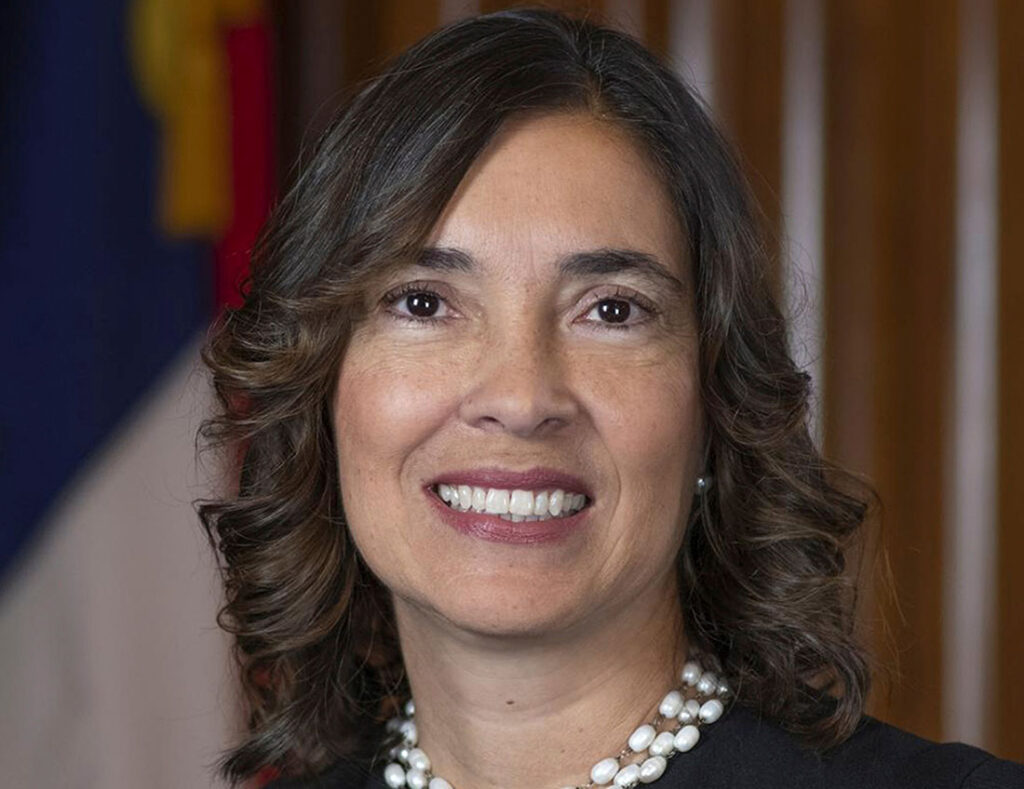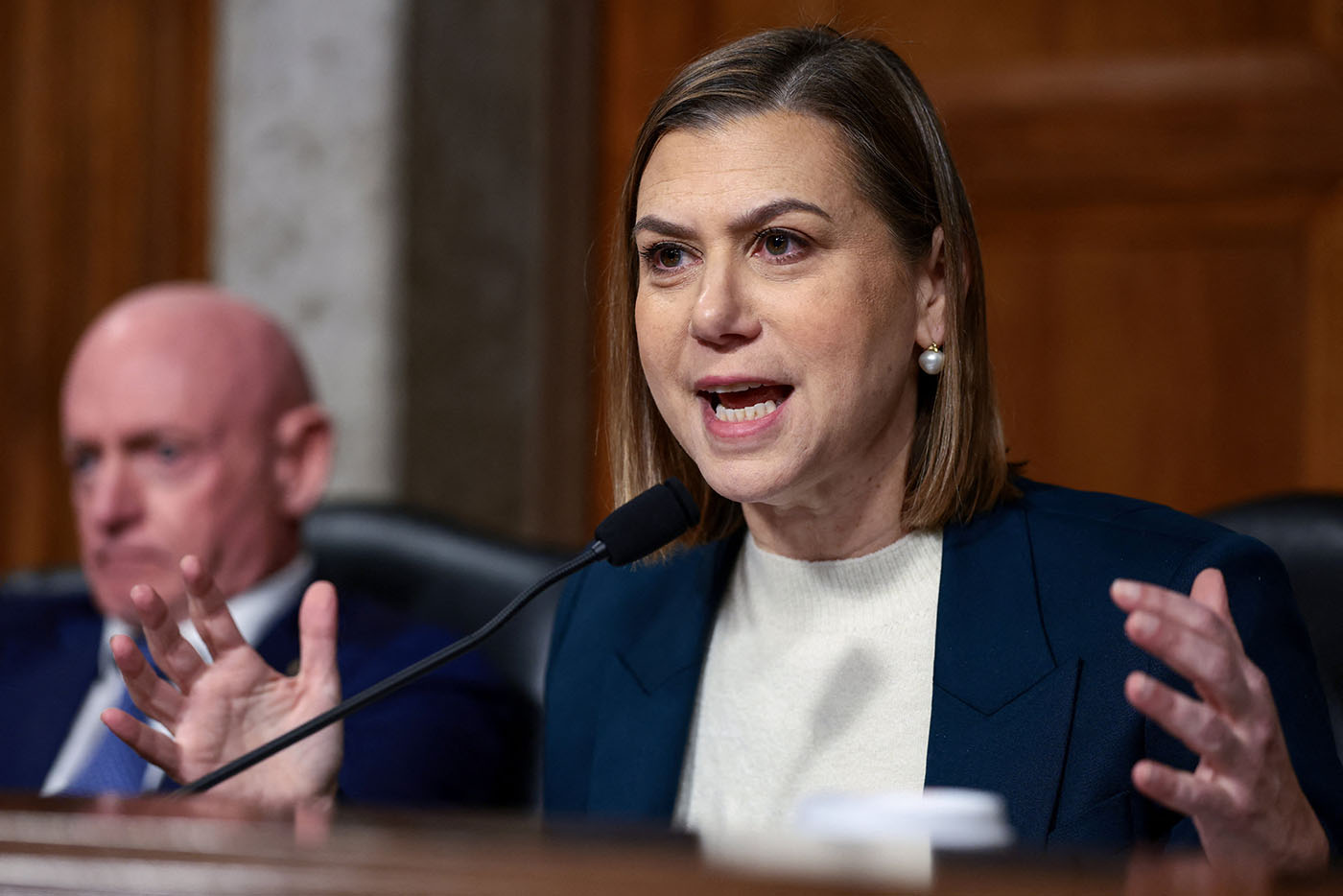RALEIGH, N.C. (AP) — An ethics probe into a Black state court justice’s comments about diversity will move forward after a federal judge denied her request to halt the investigation she says is quashing her right to free speech.
Associate Justice Anita Earls, a Democrat, sued the North Carolina Judicial Standards Commission in August, alleging their investigations have chilled her First Amendment rights and disrupted her work. Her lawyers asked a federal court to halt the panel’s activities while her lawsuit goes to trial.
But U.S. District Judge William Osteen denied the request late Tuesday, writing that a justice’s speech carries greater weight than average citizens. The state has a legitimate interest in protecting the authority and integrity of the court, wrote Osteen, who was nominated to the federal bench by Republican President George W. Bush.
Earls, one of two Democrats on the seven-member Supreme Court, will appeal the decision to the 4th U.S. Circuit Court of Appeals, her attorney said.
“The opinion is contrary to established legal precedent on the role of federal courts in guaranteeing the freedom of speech,” said attorney Press Millen following the ruling.
Earls is the only Black member of the state’s highest court. She was elected as justice in 2018 after a long career in civil rights and voting law and has often come to loggerheads with her Republican colleagues.
She filed her lawsuit two weeks after a commission staff attorney wrote her a letter saying the panel was going to investigate her over an interview with legal news outlet Law360. In it, she had discussed the Supreme Court’s decision to end a commission looking at fairness and equity in the state court system and what she considered a lack of minority judicial clerks.
“I really do think implicit bias is at play,” she said, according to the Law360 article, adding that “there have been cases where I have felt very uncomfortable on the bench because I feel like my colleagues are unfairly cutting off a female advocate,” including one who was Black.
That interview also appears to allege that her Republican colleagues have acted out of political bias in some of their decision-making, the commission attorney said in the letter to Earls.
The commission argued in federal court that her lawsuit should be dismissed, citing a legal doctrine that discourages federal courts from hearing a case that could interfere with the authority of state courts.
Scores of civil rights advocates and Black legislators have come to Earls’ defense, saying she should be praised for speaking out about racism and sexism in the courts, but that she’s otherwise being singled out as a Black female jurist.
Members of the commission, composed of judges and non-attorneys picked by the chief justice, legislative leaders and the governor, can recommend to the Supreme Court that a judge receive anything from a public reprimand to suspension or removal from office. Or it can issue a private letter of caution on its own.
Earls has become a foil to the court’s new Republican majority, which includes Chief Justice Paul Newby. She has criticized in dissenting opinions decisions by GOP colleagues to reconsider rulings by the previous Democratic majority that had struck down photo voter identification and gerrymandered voting maps. Her seat is up for reelection in 2026.
Since the lawsuit was filed, the Republican-controlled General Assembly has adjusted the commission’s composition so that GOP leaders now choose six of the 14 members, not two.
Tags




